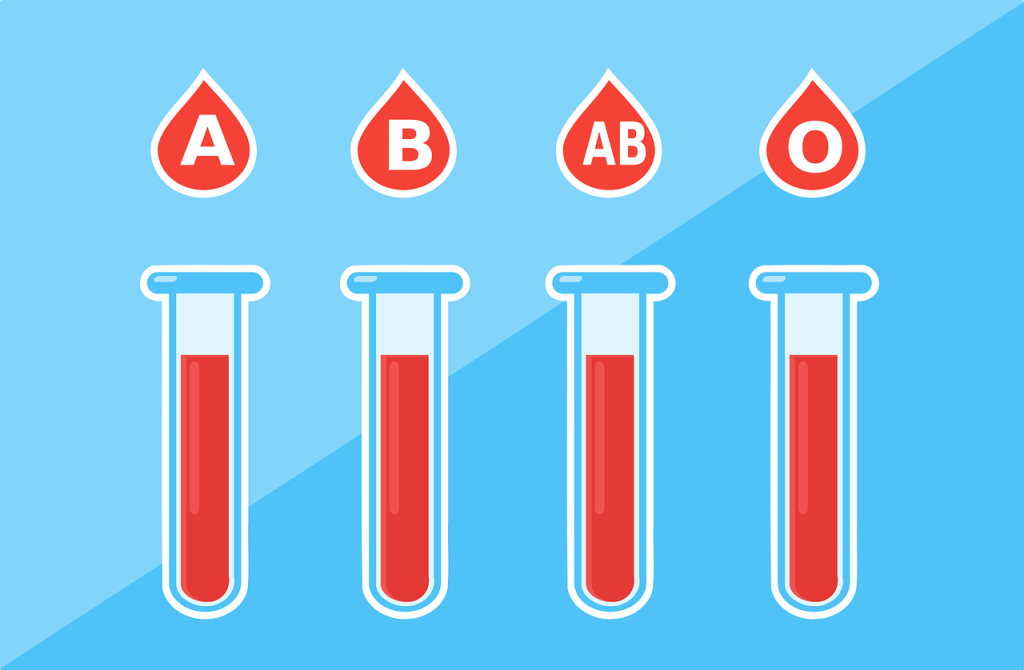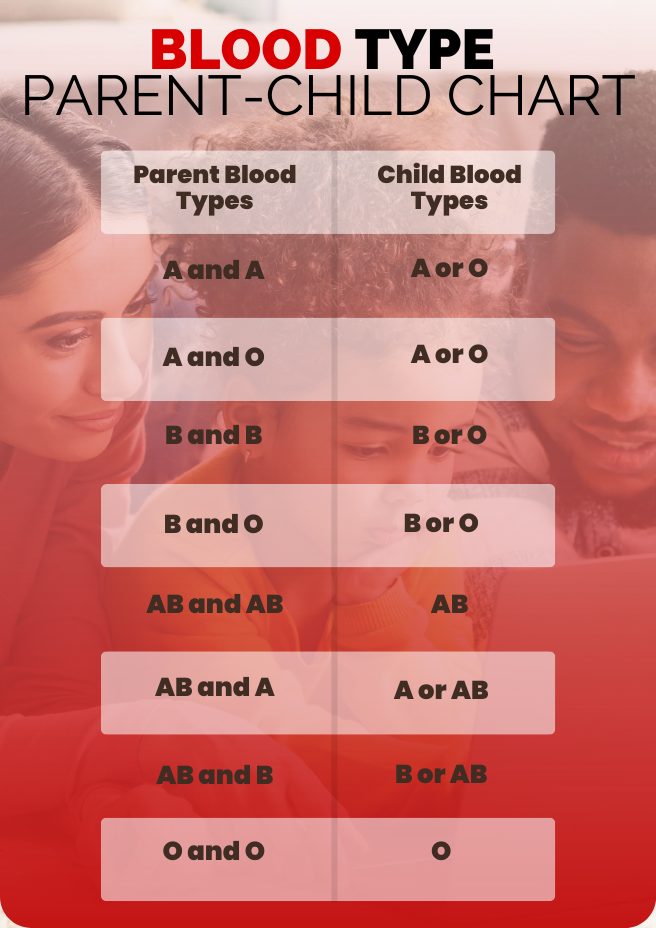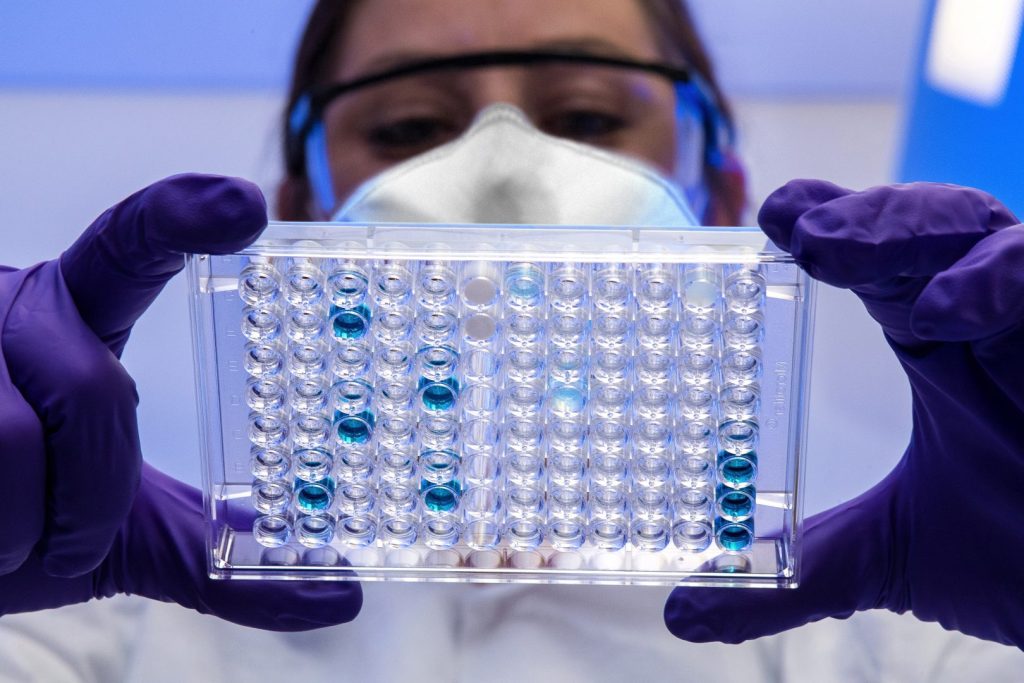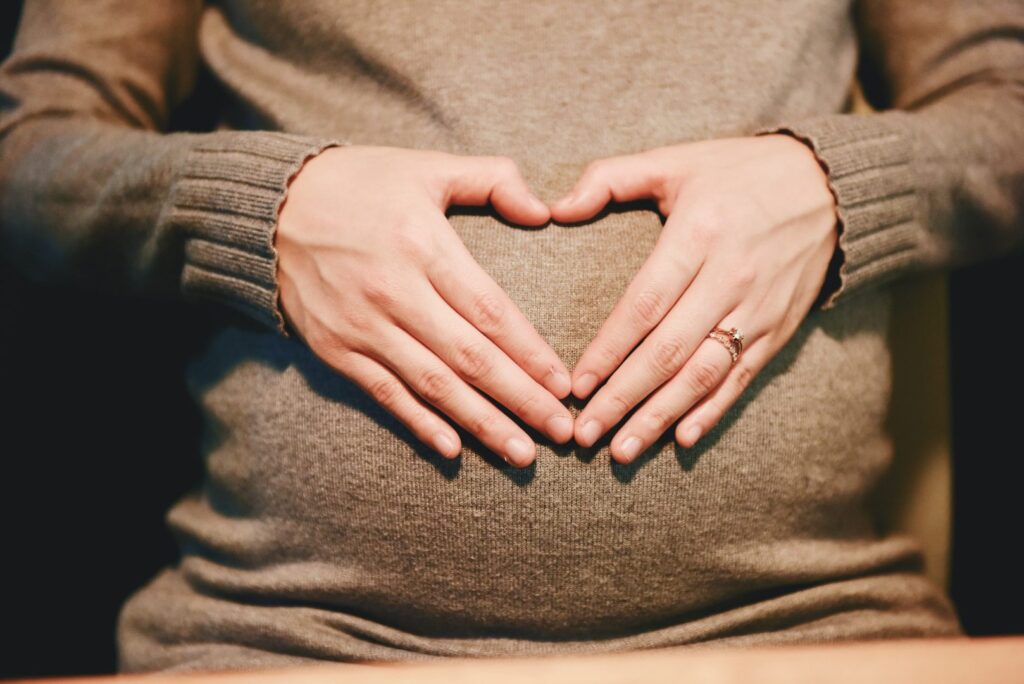Have you ever wondered what blood type your baby will have? Well, it’s always a fun activity to try and guess it!
But the science behind the inheritance of bloody types is also quite intriguing and not so hard to understand.
Your baby’s blood type depends on your and your partner’s blood type. It’s all about genetic patterns! So, let’s dive into the world of genetics and help you find out what blood type your baby will have.
The Basics of Blood Types
According to the International Society of Blood Transfusion, there are 44 true blood types.
But we’ll cut it down to the four main blood types: A, B, AB, and O. These blood types are determined by some antigens in your body.

On the other hand, there is a thing called the Rh factor which determines whether your blood type is positive or negative.
If your child’s red blood cells possess an Rh factor, then their blood type is positive. Otherwise, their blood type is negative.
Both antigens and the Rh factor are inherited from your parents. So, in reality, we recognize eight blood types. Those include:
- A–positive;
- A–negative;
- B–positive;
- B–negative;
- AB–positive;
- AB–negative;
- O–positive;
- O–negative;
How Blood Types Are Inherited
Blood types are inherited from both parents. The alleles for the O type are recessive, while the others are dominant.

So, if a child gets A-type alleles from one parent and O-type alleles from the other parent, the child will have an A blood type.
The principle of dominant and recessive alleles was established by the renowned biologist Gregor Mendel
And Mendel proved his theories by using peas! So, the fundamentals of human genetics lie in Mendel’s pea garden.
Nonetheless, there is an intriguing phenomenon regarding the AB blood type. That phenomenon is called codominance.
Both A and B blood types are dominant. So when they cross, a codominant AB blood type is created.
The best way to understand the crossing of blood types is by using punnet squares. You can find these punnet squares with a simple search.
Or even better, you can check out our blood type chart. It gives accurate information about what your baby’s blood type can be.
Predicting Your Baby’s Blood Type
Predicting your baby’s blood type can be quite simple. You can accurately guess the main blood type by looking at your and your partner’s blood type.
If both parents have A (or B) blood type, the baby’s blood type, then the baby will be A (or B), or the recessive O blood type.
The results are the same if one parent has A (or B) blood type, and the other parent has the O blood type.
If both parents have a codominant AB blood type, the baby will also have an AB blood type. If both parents carry the recessive O blood type, the baby will also have the recessive O blood type.
If one parent has an AB blood type and the other parent has an A blood type, the child will have an AB or A blood type.
If one parent has an AB blood type and the other parent has a B blood type, the child will have an AB or B blood type.

Phew, that was a lot of ifs. Blood types are still rather simple combinations. There are even more complex genetic variations!
Importance of Knowing Your Baby’s Blood Type
Knowing your baby’s blood type can mean a lot. One example is medical emergencies. If your baby has to undergo surgery, the doctors will need to know the baby’s blood type.
That’s because they need to transfuse the same type of blood while performing the surgery.
So, hats off to people that donate blood. They are silent saviors of many children, adults, and elderly people. Also, there are other medical benefits and concerns regarding the different blood types.
Medical experts state that having an O blood type lowers the chances of having heart attacks, blood clots, etc.
Rh Factor and Its Impact
As mentioned earlier, an Rh factor determines whether your baby’s blood type will be positive or negative.
The Rh factor is indeed a protein. When it’s absent in red blood cells, the person’s blood type will be negative. Otherwise, it’ll be positive.
But experts state that the Rh factor can cause serious complications during pregnancy and fetal development.
If the mother is Rh-negative and the baby is Rh-positive, the mother will release Rh antibodies that hurt the fetus.
That can result in the fetus having serious health complications and even lead to the death of the fetus. To prevent this, soon-to-be mothers should check if they are Rh-negative before getting pregnant.
That can help doctors prescribe medications that will hinder the development of antibodies, allowing the mother to safely have a baby.

Genetic Variations and Exceptions
Genetics is fun because there are countless variations and exceptions which can really make sciency things spicy!
For example, statistically, the rarest blood type is AB-negative. That’s why AB-negative donors are much needed!
Another rare blood type is B-negative. Did you know that Leonardo DiCaprio and Johnny Depp have this blood type?
Shortly, the blood type system implements all the laws (and exceptions) that genetics offer. A true scientific wonder!
Which parent determines the blood type of the child?
A child’s blood type depends on both parents. The combination of their blood types will create the blood type of the child.
Can a child have a different blood type than both parents?
Yes, it can. For example, both parents can have an A blood type and the child could end up having an O blood type.
Do siblings have the same blood type?
Siblings most often don’t have the same blood type. The chances for siblings having the same blood type are greater when both parents have the same blood type.
Can you tell if a child is not yours from the blood type?
With blood types, you can prove that a person isn’t the father of the child. But you can’t determine whose child it is just by using the ABO blood type system.
What 2 blood types are not compatible with pregnancy?
Incompatibility in pregnancy happens when the mother has an Rh-negative blood type, and the fetus has an Rh-positive blood type.
ALSO READ: Child Fever: When to Go to Hospital







